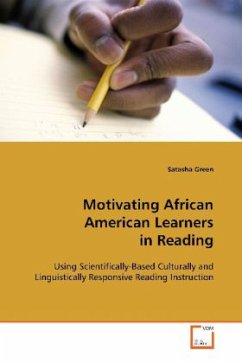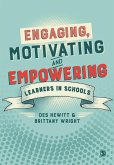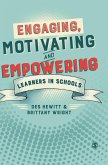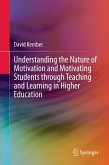African American students represent an academically
low performing group according to standardized
measures in such areas as reading. Yet, the question
remains, What can be done to motivate and
academically engage African American learners in
reading?
It has been theorized by several researchers in the
field of linguistics and education that low
achievement in reading can be attributed in part to
some African American learners oral language
traditions, possible limited experiences with early
literacy development and printed text.
African American student underachievement will
persist without advances in research-based practices
that are culturally and linguistically responsive
and accommodate their learning needs.
This book provides theories, explanations and
methods for reading achievement of African American
students that will help educators and practitioners
to carry out and understand the importance of
providing culturally and linguistically responsive
curriculum and instruction for this population of
students in reading.
low performing group according to standardized
measures in such areas as reading. Yet, the question
remains, What can be done to motivate and
academically engage African American learners in
reading?
It has been theorized by several researchers in the
field of linguistics and education that low
achievement in reading can be attributed in part to
some African American learners oral language
traditions, possible limited experiences with early
literacy development and printed text.
African American student underachievement will
persist without advances in research-based practices
that are culturally and linguistically responsive
and accommodate their learning needs.
This book provides theories, explanations and
methods for reading achievement of African American
students that will help educators and practitioners
to carry out and understand the importance of
providing culturally and linguistically responsive
curriculum and instruction for this population of
students in reading.








